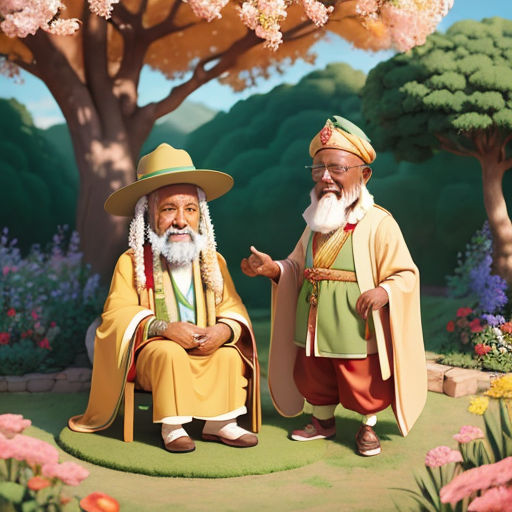
Setswana Learner's Journey
By Storybird

12 Jun, 2023

Once upon a time in a small village, there lived a curious child named Lerato. The village chief was a wise old man who had traveled far and wide and learned many languages. He had been teaching the children in the village various languages, including Setswana. Lerato loved learning and eagerly awaited each lesson with the wise old man.

During one of their classes, the wise old man handed out Setswana flashcards to the children. The flashcards were a great way for the children to engage with the language and learn quickly. Lerato was so excited to practice with the flashcards that he asked the wise man if he could borrow them to study at home. The wise old man agreed and handed the flashcards over to Lerato with a smile.

That evening, Lerato sat down and began studying the Setswana flashcards. With enthusiasm, Lerato said out loud, "Ke a ithuta Setswana," meaning "I am learning Setswana." Overjoyed, Lerato spent hours going through the flashcards and repeating the words and phrases.

The next day, Lerato went to school and bragged to his friends about his new language skills. He told them, "Ke rata go bala dibuka," or "I love reading books." His friends were amazed by Lerato's dedication to learning Setswana and began asking him to share his new vocabulary.

During lunchtime, Lerato shared some phrases from the flashcards with his friends. He taught them how to say, "Ke ya sekolong," which means "I am going to school," and "Ke ja dijo," which translates to "I am eating food." His friends eagerly practiced the new phrases and were grateful for Lerato's patience in teaching them.

After school, Lerato and his friends went to play football. As they played, they practiced some more Setswana phrases from the flashcards. Lerato taught them, "Ke tshameka bolo ya maoto," which means "I am playing football." His friends laughed and tried repeating the phrase as they played.

At home, Lerato decided to write a letter to his grandmother, who lived in a neighboring village. He wanted to surprise her with his newfound Setswana-speaking abilities. As he wrote the letter, he recalled the phrase, "Ke kwala lengwalo," which means "I am writing a letter." He carefully wrote the phrase in his letter, excited to share his progress with his grandmother.

Later that evening, while Lerato was watching television with his family, he remembered another phrase from his flashcards. "Ke lebelela TV," he said out loud, which means "I am watching television." His family was impressed with his dedication to learning Setswana and encouraged him to keep practicing.

While Lerato was getting ready for bed, he put on some music to relax. As he listened, he thought, "Ke utlwa mmino," which translates to "I am listening to music." He felt proud of his progress and was excited to continue learning Setswana.

The next day, Lerato confidently walked up to the wise old man and said, "Ke bua Setswana," which means "I am speaking Setswana." The wise old man smiled and praised Lerato for his dedication and hard work in learning the language. He encouraged Lerato to continue his studies and grow in his knowledge of Setswana and other languages.

Lerato's enthusiasm for learning Setswana inspired other children in the village to join in the language lessons with the wise old man. Soon, the entire village was buzzing with people practicing and learning Setswana. The village chief was proud of their progress and grateful to have played a part in their language journey.

As the months went by, Lerato continued to excel in his Setswana studies and became proficient in the language. He enjoyed conversing with his friends, family, and the wise old man in Setswana. He even wrote more letters to his grandmother, who was thrilled to receive them and learn of her grandson's accomplishments.

Eventually, the wise old man decided it was time to introduce the children to another language. He started teaching them French, and Lerato, once again, jumped headfirst into the new language adventure. His enthusiasm for learning never waned, and his love for languages continued to grow.

Years later, as an adult, Lerato traveled the world and learned many different languages. He never forgot the kindness and wisdom of the old man who first taught him Setswana, or the village that fostered his love for learning. And, wherever he traveled, he carried with him the story of the wise old man and the Setswana flashcards that changed his life.